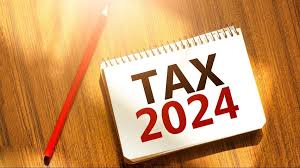The employee retention credit (ERC) has been one of the most beneficial forms of pandemic relief for the restaurant industry. However, despite the benefit of cash refunds, the ERC also has been the source of significant frustration among restaurant owners. This article addresses a few of the issues that restaurants face regarding refund processing, IRS examinations of credits, and tax liabilities, including potential underpayment penalties due on the refunds.
Refund Processing
While the IRS backlog of unprocessed ERC claims (that is, claims submitted on IRS Form 941-X) is diminishing, taxpayers are still experiencing wait times longer than eight months from the time a claim is submitted until the claim is processed and a refund check is issued. In some cases involving large claims, taxpayer wait times have exceeded one year.
When contacting the IRS general hotline or using the practitioner priority line, taxpayers should be aware that IRS agents are generally unable to provide definitive information regarding the status of a pending ERC claim, including the estimated processing time. However, IRS agents have been able to confirm whether the IRS received the ERC claim, providing taxpayers reassurance that their ERC claim has at least been entered into the queue for processing and has not been lost in the mail, given that Forms 941-X can only be filed on paper.
Initial IRS Exams of Credits – What to Expect
The IRS has begun conducting examinations of ERC credits, not just in the restaurant industry but across the board on all taxpayers who have claimed the credits. In some cases, the IRS has issued a formal Information Document Request (IDR) for the taxpayer to provide detailed information in support of its ERC claim, prior to the IRS processing the claim and issuing the refund. Information requested within the IDR is consistent with the types of information outlined in Notice 2021-20.
Based on the Q&A section in IRS Notice 2021-20, it is expected that the IRS credit examinations will focus on:
- The gross receipts test – if the taxpayer used the gross receipts test to determine eligibility, were gross receipts as defined under IRC Section 448(c) calculated correctly? Taxpayers may be asked to provide documentation to support their calculations.
- If an employer acquired a business during 2020 and used the safe harbor approach, documentation that supports the gross receipts of the acquired business and the calculations may be requested.
- Suspension of operations test – identifying governmental orders that restricted business operations partially or fully during a calendar quarter.
- Documentation supporting the conclusion that the aggregation rules were properly applied, as detailed in Q&A Number 7 of Notice 2021-20.
- The ERC calculation, specifically documentation that provides confirmation for:
- The calculation for the maximum amount of the credit claimed.
- Qualified wages are used in the calculation.
- The fact that wages that were used for PPP eligibility and forgiveness were excluded.
- The percentage limitation to the amount of qualifying wages and qualifying wage per limit were applied correctly and to the correct quarters.
- Requests for federal income tax returns to determine that wages and health plan expenses that were used for the credit were disallowed on the tax return for the year related to the year in which the expenses were incurred.
- Documentation supporting the claim that the number of full-time employees was calculated correctly to determine eligibility for the credit and whether an employer was a small eligible employer or a large eligible employer.
The IRS examinations can cover the items above and much more. Further detail on what may come into question under an IRS exam of ERC claims can be found in Notice 2021-20.
Generally, taxpayers are not required to submit detailed documentation to support their ERC claim at the time the Form 941-X ERC is submitted to the IRS. However, prior IRS guidance did set forth the expectation that taxpayers should retain detailed information to support ERC claims, in the event such information is later requested by the IRS as part of a subsequent examination. Underlying information and data supporting the ERC claim should be retained for four years, as per Q&A #70 in IRS Notice 2021-20.
The IRS limitation on the time period for the assessment of any amount attributable to a credit claimed is within five years after the later of the date on which the original return that includes the calendar quarter with respect to which such credit is determined is filed, or the date on which such return is treated as filed (IRC Section 3134(l)).
Reminder: Penalty Relief May Be Available
Considering the wait times for processing and providing refunds for amended employment tax returns taxpayers used to claim the ERC, the IRS reminds taxpayers that penalty relief may be available to them for penalties assessed on the additional income tax owed because of ERC claims.
In an IRS news release (IR 2022-89, April 18, 2022), the Treasury and the IRS acknowledged that taxpayers may end up in a situation whereby they have taxes due on ERC refund payments that have not yet been received. The news release reminds taxpayers that they may qualify for relief for penalties assessed for failing to pay the taxes owed due to claiming ERC refunds. An IRS-issued notice covering miscellaneous issues applicable to ERC for both the 2020 and 2021 tax years stated that “To the extent that an employer files and adjusted or amended return to reflect these clarifications and consequently owes additional tax, any penalties for failure to timely pay or deposit tax will not apply if the taxpayer can show reasonable cause and not willful neglect for those failures.” (Notice 2021-49). If a taxpayer finds itself subject to penalties on tax underpayments related to ERC refunds, this penalty relief may come in handy.
Overall, ERC benefits greatly outweigh any potential drawbacks. Being aware of those possible obstacles, as discussed in this article, can help taxpayers know what to expect after Form 941X is filed.
DPW Tax Department




